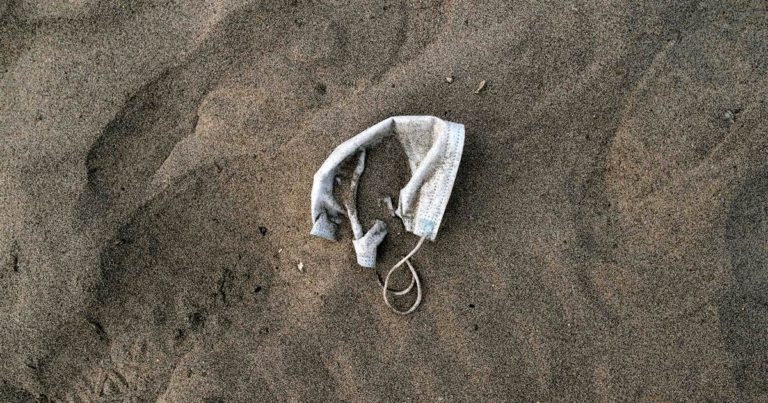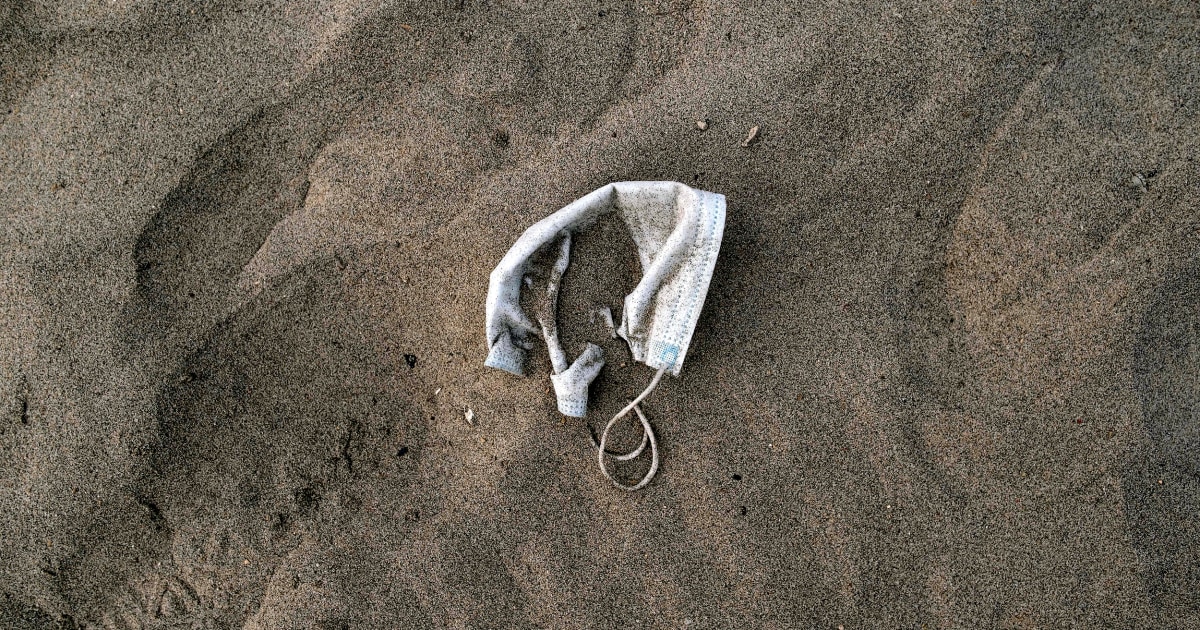

Long before the final countdown to the new year, the party was raging in the Mexican resort city of Puerto Vallarta.
“Ring in the New Year at White Party Puerto Vallarta: UNITY where restaurants, gyms, bars and clubs are open and ready to welcome you to the ultimate New Years weekend getaway!!!” read the online invitation for American party promoter Jeffrey Sanker’s annual New Year’s Eve circuit party, a large all-night dance event for gay men.
Local officials were putting pressure on Sanker as the party neared, according to the Los Angeles Blade. Puerto Vallarta hospitals were at or near 100 percent capacity, and the state of Jalisco, where the resort town is located, was being throttled by Covid-19, with a reported 65 percent positivity rate, according to local news reports.
Instead of canceling, Sanker moved the event to nearby Nuevo Vallarta, just 10 miles north, but in a different state with more relaxed Covid-19 regulations, according to NBC affiliate KMIR of Palm Springs, California, where Sanker began his White Parties nearly 30 years ago.
Ticket holders got messages from Sanker’s company, White Party Entertainment, asking them not to post about the party on social media to avoid “causing any issues with the public,” according to KMIR and photos shared on social media.
It’s no surprise that Sanker — who didn’t respond to multiple requests for comment over a period of five days — wanted to keep the event out of the public eye. Americans vacationing and gathering during the pandemic against the advice of public health officials have been the target of fierce criticism and public shaming on social media.
In an email sent to NBC News on Friday, Jack Ketsoyan, a publicist for Sanker, refused to answer any questions.
A cadre of Instagram accounts run by LGBTQ people have recently begun targeting fellow members of the queer community, particularly gay men, accusing them of publicly violating public health directives. Among the most popular is @GaysOverCovid, which as of Friday had over 120,000 followers. Since the summer, the anonymous account has been reposting travel photos that gay men have uploaded to their social media accounts. The account shares the men’s social media handles — often the same as their full names — and places of work. @GaysOverCovid did not respond to direct messages requesting comment.
Instagram accounts hawking gossip, sometimes called “tea accounts,” aren’t new. Some call out the behavior of social media influencers; others track the latest news about celebrities and YouTube personalities. But the influx of accounts policing behavior around Covid-19 has been an innovation of the pandemic and the social constructs it has created. And accounts like @GaysOverCovid are at the center of a debate over whether shaming those who allegedly violate pandemic guidelines — or show poor judgment that puts public health at risk — does a public service or creates an irreversible toxic division within the LGBTQ community.
“To continue to see front line workers in Puerto Vallarta amidst a global pandemic is an absolute outrage! Where is their moral compass or any sense of ethics?” read the caption from a recent post on @thegayrona Instagram account.
The post showed contrasting screenshots from another Instagram account: the first of a muscular young man taking a selfie wearing medical scrubs in a Chicago hospital, the next of the same man posing in a pool next to a sea lion in a photo geotagged to Puerto Vallarta.
Speaking on the condition of anonymity, asking to be identified only as a “gay male working in tech,” @thegayrona’s creator said he was frustrated to see fellow gay men posting photos of seemingly carefully planned vacations during a devastating new wave of Covid-19 deaths in the U.S.
“I’m sure everyone at some point in the last nine months has broken the rule and said, ‘I’m going to see this one friend that I trust,’ but this is someone that decided to buy a plane ticket and book a hotel, figure out transportation and figure out parties,” he said.
Many of the travelers were doctors and nurses who followed a pattern of posting shots of themselves on the front lines of the pandemic and receiving the first dose of a Covid-19 vaccination, followed by photos taken poolside over the New Year’s holiday, the account’s creator said.
“You see a nurse or a doctor post a photo on their page getting the shot administered to them, and then they view that as a one-way ticket to a circuit party,” he said. “It’s such a dangerous tone to set for the community.”
The creator of another account, @theyshouldknowbetter, said that it doesn’t single out gay people, but has posted about many LGBTQ health care workers to encourage quarantining after possible exposure to the virus.
It recently shared photos of a man posing in the offices of Dr. David Rosenberg, a plastic surgeon in Beverly Hills, California, where the description alleged the man worked, followed by Instagram posts from the same man’s subsequent trip to Puerto Vallarta.
Rosenberg said Thursday that when he learned about the social media posts, he spoke to the employee, a clerical worker not involved in patient care, and required him to quarantine upon his return to Los Angeles and to test negative before he goes back to work.
“We are committed to protecting the patients who come to see us, and that is why our employee is required to quarantine,” Rosenberg said.
One traveler, Ron, said he and his friends felt as though they had been targets of “a witch hunt with strong intentions of really hurting someone” after their Facebook photos of a New Year’s holiday trip to Puerto Vallarta were reposted by the @BostonGaysOverCovid Instagram account.
Ron, a Boston-based health care worker, said the trip was planned to celebrate his husband’s 40th birthday, and he stressed that they didn’t attend the circuit party. He didn’t want his surname published for fear of further online harassment.
“We have spent our time here being ultra safe — staying at our rental, socially distancing on a beach with my pod, wearing masks except for our pictures,” he said by email.
“None of us participated in those party activities,” he added, saying he and his husband traveled with four other people. “We wore masks. We tested multiple times before arriving and plan to have tests afterwards. We were labeled in error just for traveling.”
Some members of the LGBTQ community have started a campaign to unmask the creators of the #GaysOverCovid accounts.
In a public plea on a circuit party page on Facebook, Lan Vu, 37, of San Francisco, offered a $500 reward to help identify the posters behind the accounts. Calling the accounts “toxic,” he has encouraged members of the community to report them to Instagram as harassment and cyberbullying, he said in a telephone interview.
Vu contracted Covid-19 in March after he traveled to a party in Miami, and he said he tested positive for antibodies in May and September.
“For gay people, clubbing and bars … it’s a sanctuary where we can be free and forget about reality for a little bit,” he said. “It’s been so long, and a lot of people are starting to want their normal lives back.”
A better use of the accounts’ huge reaches would be to simply encourage people to quarantine when they return home, Vu said.
While there are no known prominent examples of tough consequences for those who faced social media scrutiny from the #GaysOverCovid movement, there are examples elsewhere.
George Santos, a gay former candidate for New York’s 3rd Congressional District seat, said his fiancé was fired as a pharmacist after a New York Times article shared Santos’ Instagram post from a New Year’s Eve party the two attended.
“My fiancé & I had to leave our home this evening with our 4 dogs thanks to the @nytimes publishing of my Instagram showing me attending the #MarALago New Year’s Eve party,” Santos wrote. “My fiancé a pharmacist who worked 12h/7days shifts for 9 months was fired! The violence against us is real.”
He received little public sympathy.
“You’re a guy running for Congress, and you’re upset that the paper that covers your district is … covering your campaign-oriented Instagram account?” shot back Chris Geidner, BuzzFeed’s former legal editor.
@TruthWinsOut, a gay advocacy group, tweeted: “A pharmacist who attends a maskless party should be fired. He set a horrible example and was derelict in his duty as a medical professional.”
On the fringes of the debate are other themes: how behavior of partiers during a pandemic could brand the broader gay community as selfish, setting back progress for acceptance. While there are many heterosexual people who have ignored public health guidance, none of them have required other straight people to set themselves apart from those not following the rules.
“This is definitely a moment where we can be critical of gay culture,” said Chris Conner, a visiting professor of sociology at the University of Missouri who studies gay movements and is gay himself.
Conner said the New Year’s parties underscore another divide in gay culture — one between those with privilege and those without, a divide that often intersects with racial lines, as well.
“They have the disposable incomes to get on the plane and go to a party,” he said. “They’re probably used to being able to get whatever they want, at any time, and that includes health care.”
Zack Ford, a former editor of LGBTQ news at the defunct news site ThinkProgress, said many of the men being publicly criticized see themselves as victims, rather than recognize the role they potentially play in spreading the virus.
“Covid has really tested American notions of freedom, and I think there are a lot of people who for one reason or another don’t appreciate the impact their actions have on other people’s safety,” he said.
Despite the debate over the behaviors of the men who haven’t abided by Covid-19 guidelines, Ford said that the rift in the community is small and that it’s limited to a subset of people.
“There’s not a gay civil war, there’s not a huge fracture, but this is one little moment of ‘Hey, people did the wrong thing, and they got called out for it, and that doesn’t make them victims,'” Ford said.